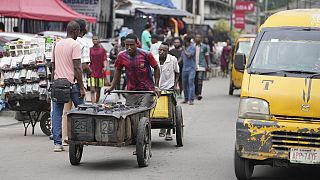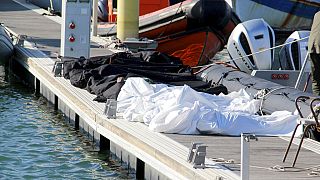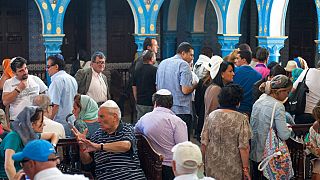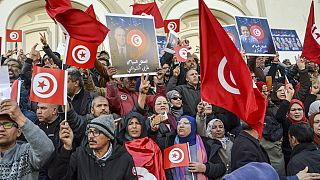Tunisia
Holiday-makers lie on sun loungers at a Tunisian luxury hotel where everything from the swimming pool to the wall paint, furniture at the shiny reception hall, police post at its gate and even its name is new.
Nothing reminds holiday-makers of the day in June 2015 when an Islamist militant shot dead 39 foreigners in this beach resort, triggering an exodus of tourists from the North African country and severely damaging its economy.
Thanks to a massive security presence and advertising abroad some tourists have returned, helping boost revenues from the sector by 21 percent to $851.06 million in the first nine months of 2017 compared to last year, according to central bank data.
Westerners are still reluctant to come back despite most countries having lifted travel warnings.
But hotels have managed to fill rooms with Algerians and Russians, the latter group avoiding Egypt since Islamic State downed a Russian plane in October 2015.
Alexander Maslenikov from Siberia, Russia said he was enjoying the temperatures, while Lidia Maslenikov approved of the whole resort.
“It’s cheap, good price, good time, good hotel, I like everything,” she said.
The Steigenberger Kantaoui Bay in Sousse – a tourist beach town located some 150km south of the capital Tunis – reopened this summer after undergoing a facelift, dropping even its old name, Imperial Marhaba.
“In terms of safety, we have taken a very big step forward,” said the hotel’s owner Zohra Driss. She says the hotel is fully booked until October.
Tourism accounts for about 8 percent of Tunisia’s gross domestic product, provides thousands of jobs and is a key source of foreign currency, but it has struggled since two major attacks in 2015.
The first at the Bardo National Museum in Tunis left 21 tourists dead, while 39 mostly British holiday-makers were killed in the Sousse attack.
But with hotels resembling fortresses many holiday-makers book “all inclusive” tours benefiting hotel chains while staying indoors – leaving souvenir traders and cafes idle in the old city.
Shopkeepers in Kantaoui Port miss their traditional clientele.
“We are happy when there are English, Europeans in general, French, Italian, Dutch, really happy when we exchange with them, when we give them information, they leave happy and we stay happy,” said shopkeeper Charfeddine.
Officials say tourism revenues are rising, despite risks from I.S. and a weak dinar.
“Revenues for the period from January to September 20 in Tunisian dinars increased by 21 percent, in euros, we recorded a slight increase of 6.4 percent,” said head of the national tourism office Neji Ben Othman.
He said Tunisia aims to attract tourists from new destinations like China and Canada as well as its traditional markets like the UK and Germany.
Tunisia has increased security in Sousse and other tourist spots, erecting checkpoints on main roads and at hotels after police came under fire for a slow response during the 2015 attack.
Reuters




![Can Africa’s soil sustain food security? [Business Africa]](https://static.euronews.com/articles/stories/08/39/08/36/320x180_cmsv2_6c750e33-e25d-57d1-a896-b069180361f4-8390836.jpg)








00:59
British man running length of Africa nears finish line
01:31
Reaction: 4 sentenced to death for the assassination of Chokri Belaid in Tunisia
01:26
Migrants waiting in Tunisia react to Albania's controversial deal with Italy
01:04
Tunisia: Opposition leader Ghannouchi begins hunger strike in prison
02:19
A dive into Tunisia's contemporary art scene with the "Et si Carthage ?" exhibition
01:10
AFCON: Mali draw against Tunisia to top Group E with 4 points